June 7, 2025 | 16:20 GMT +7
June 7, 2025 | 16:20 GMT +7
Hotline: 0913.378.918
June 7, 2025 | 16:20 GMT +7
Hotline: 0913.378.918
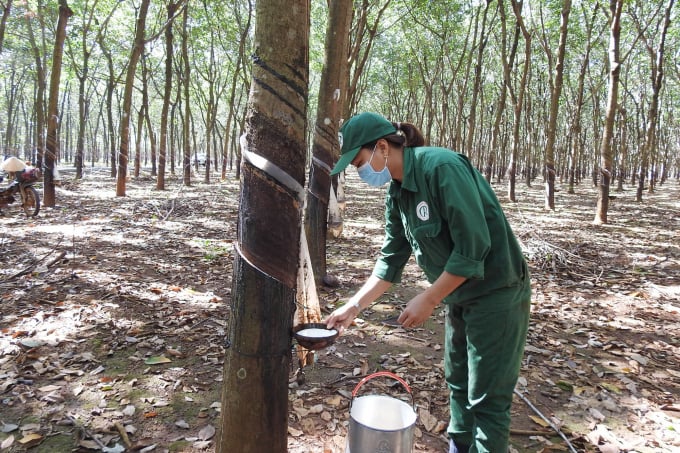
Rubber price is forecasted to continue to rise in the short term. Photo: Tran Trung.
Despite being greatly affected by the Covid-19 pandemic, 2021 is still a successful year for Vietnam's rubber exports when setting two new records in both volume and value.
Vietnam exported 1.955 million tons of rubber in 2021, making this the largest volume of rubber exported in a year in the history of Vietnam's rubber industry.
As for value, rubber exports reached USD 3.278 billion, also the highest ever. With this export turnover, 2021 is also the year rubber exports return to the USD 3 billion mark after 10 years.
Rubber export price remains high in the first month of this year. Rubber exports reach 192,724 tons in January, accumulating a total worth of more than USD 331 million. If calculated, the average export price of rubber in January is USD 1,718/ton.
The Import and Export Department (Ministry of Industry and Trade) forecasts that in the short term, rubber price will likely continue its increase because rubber trees are entering a period of exploitation break, resulting in limited supply and demand rebounded after the winter break.
At the International Conference on Rubber Industry in Vietnam taking place at the end of 2021, Mr. Dar Wong, Investment Director of ALA Investment - Consultancy JSC, said that there is a great possibility that the market will recover and rubber price on world markets will be around USD 2,000 –2,100/ton in the first quarter of 2022. In general, in the whole year of 2022, rubber price will experience a relatively strong increase and will be in the range of USD 2,100 - 3,800/ton.
The Import-Export Department (Ministry of Industry and Trade) forecasts that Vietnam's rubber exports will increase in 2021 following the increase in rubber import demands from major markets such as China, the United States, India, and Europe as these countries are making a strong recovery after a long time being affected by the pandemic.
The world's rubber demand is still on an upward trend. Information from the Association of Natural Rubber Producing Countries (ANRPC) shows that the easing of restrictions related to the Covid-19 pandemic, such as reopening the borders of some countries and resumption of economic activities will significantly contribute to the recovery of rubber demand in 2022.
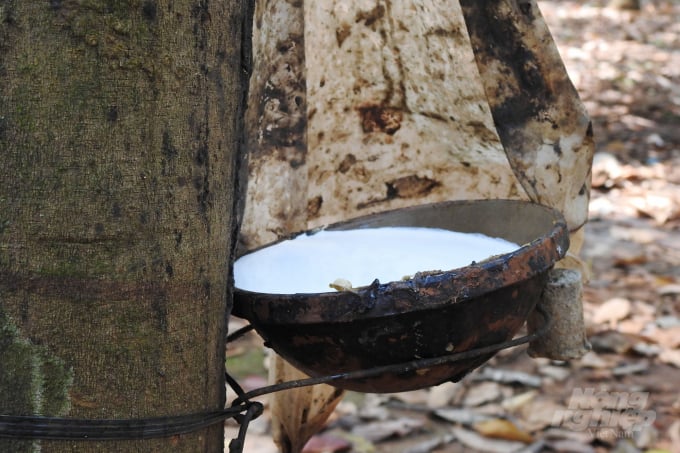
Rubber demand keeps increasing all around the world. Photo: Tran Trung.
ANRPC forecasts that the global rubber consumption in 2022 will increase by 4-5% compared to 2021. In addition to the shortage of supply, the rising oil price also leads to an increase in the price of synthetic rubber because crude oil is an input for the production of synthetic rubber.
The positive signs in the market are clearly demonstrated in the demand from Vietnam’s two largest rubber markets - China and India.
China is the largest market of Vietnamese rubber in 2021 with the volume and value of exports to this country at 1.4 million tons and USD 2.3 billion. Information from the Ministry of Industry and Trade shows that China is in need of consuming about 500,000 tons of natural rubber per month of which only approximately 115,000 tons can be provided from domestic supply. This country therefore lacks approximately 385,000 tons of natural rubber each month.
And the Rubber Research Institute of India has recently prognosticated that the country's natural rubber output will only reach 800,000 tons while the consumption demand will reach 1,240,000 tons. Thus, India needs to import 440,000 tons to import.
While the world is constantly asking for more rubber, the supply is starting to fall short of the demand. Through preliminary statistics, ANRPC states that the world's natural rubber output reached just over 13.8 million tons in 2021, while the demand is more than 14 million tons.
ANRPC forecasts that the global rubber supply will continue to fall short of the demand and this situation will maintain in the following years until 2028, possibly even until 2031 due to the widening gap between supply and demand.
According to the Business Market Department of the Vietnam Rubber Group, the weather situation in natural rubber exploitation areas such as Thailand, Malaysia, Vietnam, especially the leaf fall disease in Thailand and India, forced speculators to change their minds and return to the commodity market earlier than expected.
Experts also said that the unseasonal rains in Thailand and Vietnam have caused the physiological defoliation of rubber trees to come earlier this year, potentially leading to a fast and massive reduction of output in the coming time.
Translated by Samuel Pham
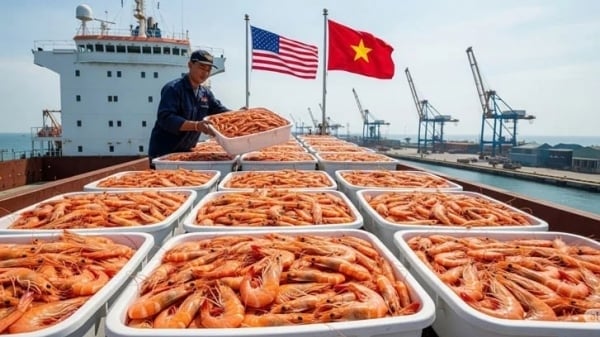
(VAN) Vietnam and the United States are proactively working together, each in their own way, to ensure that every container of agricultural goods carries not just products, but also long-term trust and value.
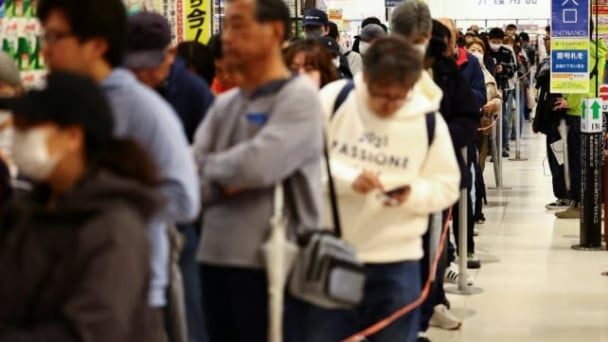
(VAN) Stores have started selling rice from the government’s stockpile to feed demand for the staple.
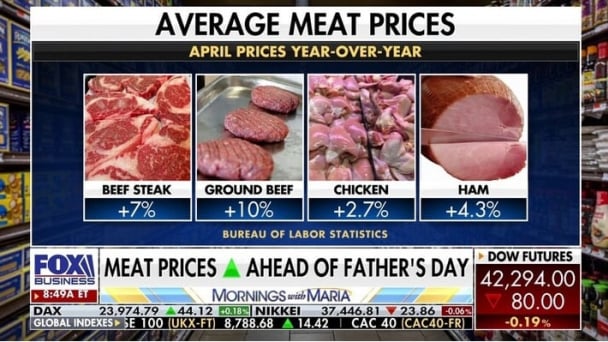
(VAN) Omaha Steaks CEO says rebuilding cattle herds will take about a year to ease price pressures.

(VAN) Reciprocal tariffs and recent NOAA rulings are presenting substantial obstacles for Vietnamese tuna exporters in the U.S. market. As a result, the industry is actively seeking alternative export destinations.

(VAN) Although the U.S. holds a small share of Vietnam’s rubber exports, newly imposed reciprocal tariffs are expected to impact the sector. Vietnamese enterprises must optimize the use of significant markets and free trade agreements.
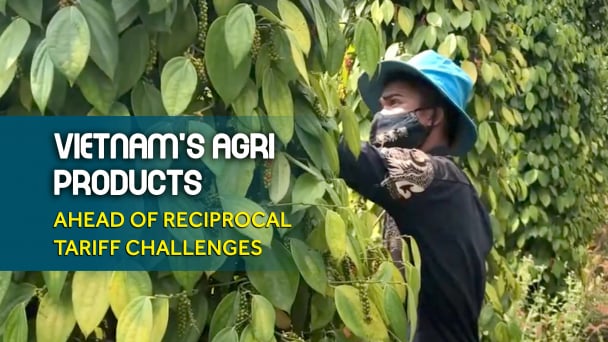
(VAN) Vietnam's pepper industry is looking forward to the final tariff decision in order to sustain its robust presence in the United States, the country's biggest pepper market.

(VAN) The U.S. is the largest market for Vietnamese cashew nuts. However, when exports to the U.S. encounter difficulties due to reciprocal tariffs, Vietnamese cashews still have many other potential markets.